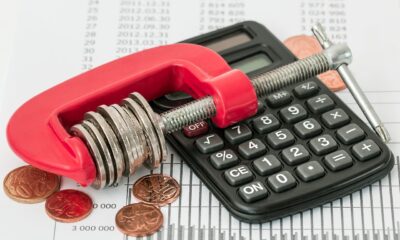
OpEds

Budget crisis – a wake-up call
Last week, on 19 February, Finance Minister Enoch Godongwana was scheduled to deliver South Africa’s annual Budget speech. Instead, for the first time in democratic history, the Budget was postponed due to political revolt within the Government of National Unity (GNU).
South Africa on a fiscal cliff
South Africa is running out of financial options. Years of low growth, persistent budget deficits, and high taxation have put the economy on an unsustainable path. Public debt is projected to peak at 76.1% of gross domestic product, more than triple its 2008 level and far beyond the International Monetary Fund’s recommended 60% to 70% range of emerging market peers.
Yet, in spite of these challenges, rampant corruption and government inefficiency ensure that higher taxes don’t translate into better services or economic growth.
To make matters worse, South Africa faces a brewing diplomatic crisis with Washington. The potential loss of AGOA (the African Growth and Opportunity Act), which grants tariff-free access to the United States market, threatens key export industries. Meanwhile, US aid cuts of up to R8bn annually will further strain public finances.
Instead of addressing these fundamental problems, the African National Congress (ANC) has doubled down on its failed policies.
A catastrophic budget that never happened
Had it been delivered, the 2025 Budget would have been one of the worst in modern history – a blatant tax grab rather than a plan for growth.
According to leaked budget documents, the most egregious proposal was a 2% VAT hike – from 15% to 17% – the largest increase in democratic South Africa. VAT is a regressive tax that disproportionately affects the poor and middle class.
The extra R60bn in revenue from this hike was intended to plug a hole largely caused by above-inflation social spending increases. As Winston Churchill famously quipped, “For a nation to try to tax itself into prosperity is like a man standing in a bucket and trying to lift himself up by the handle.”
The budget offered no serious structural reform, just recycled promises of cutting red tape and restructuring Eskom. Even the Congress of South African Trade Unions, usually a loyal ANC ally, condemned the VAT increase as a betrayal of workers.
GNU: government of national uncertainty
The budget’s postponement exposed deep fractures within the GNU. The Democratic Alliance (DA) and smaller coalition partners refused to rubber-stamp the VAT hike, proving they aren’t merely political window dressing for ANC policies.
However, the chaotic manner of this crisis – last-minute breakdowns, lack of consultation, and public embarrassment – raises serious doubts about the GNU’s ability to function.
Can this coalition survive? And if it collapses, what comes next?
Culture of waste must end
It’s difficult to justify a VAT hike when the government wastes billions.
A partial review last year of 2022/2023 spending by the DA identified at least R40bn in wasteful expenditure by the national government and state-owned enterprises. Municipalities are even worse, with R60bn in unauthorised, fruitless, and irregular expenditure in 2021/2022, according to the auditor-general’s latest report. And these figures capture only the waste we know about!
It doesn’t even include disgraceful misuse of public funds such as the R95m spent so far to fund South Africa’s International Court of Justice case against Israel, covering legal fees, business-class flights, and luxury hotels for accompanying politicians.
A bulldozer for reform
Instead of raising taxes, South Africa needs a radical restructuring of government.
Inspired by Trump’s war on bureaucracy, we need our own Department of Government Efficiency (DOGE), not with a chainsaw, but a bulldozer to smash the patronage networks that have crippled our public finances.
At the same time, the private sector must be empowered to drive economic recovery.
Securing property rights; providing policy certainty; and allowing competent businesses, not failing states, to run and maintain crucial infrastructure, like power stations, ports, and railways is the only way to stimulate fixed investment and attract much needed foreign capital.
A defining moment
The 2025 budget crisis is more than a political blunder, it’s a wake-up call.
It has exposed the weaknesses of the GNU, shaken confidence in the ANC’s economic leadership, and highlighted the urgent need for fiscal and foreign policy reform. South Africa stands at a crossroads: continue down this road of decline or make the tough choices needed to turn things around. One thing is certain, when the revised Budget is promogulated on 12 March, we cannot afford another fiasco like this.
Michael Kransdorff is chief executive of the Institute for International Tax and Finance and a Harvard trained economist










